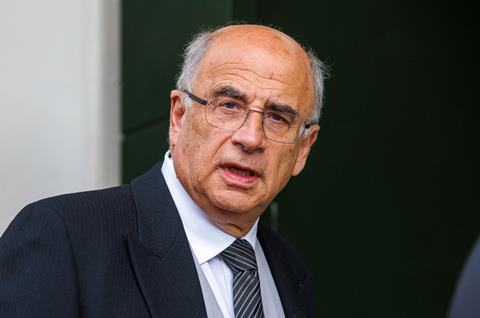Current legal aid fee structures have created ‘perverse incentives’ for defence solicitors that have contributed to the growing Crown court backlog and must be removed, Sir Brian Leveson has told the lord chancellor.
In his 378-page report on the criminal courts, published today, Leveson declared that the ‘the system is too broken’ and a ‘radical and essential package’ of measures is required to prevent total collapse.
While much of the national conversation on the well-trailed report will centre on curbing jury trials, Leveson identified ‘perverse incentives’ in the system that he wants removed. ‘It is my view that some of these incentives have become perverse in the sense that they have the potential to encourage cases to proceed to trial and discourage early guilty pleas,’ he said.
A disparity in fees ‘is creating a perverse incentive whereby solicitors are likely to be paid more by the defendant not pleading guilty at the first hearing but instead proceeding to the Crown court before pleading. The solicitor would thereby obtain the Crown court fee for a sentencing hearing, rather than the fee for a guilty plea and sentence in the magistrates’ court (and potentially for a committal for sentence to the Crown court in some cases)’.

Read more
Perverse incentives are ‘contributing to a general trend of guilty pleas being made later in the court process and causing decisions to be made which are not always in defendants’ best interests. This is delaying justice, adding to the open caseload and reducing confidence in the criminal justice system’.
A reliance on pages of prosecution evidence 'appears to be creating a perverse incentive against defence solicitors advising clients to plead guilty early (where that is in the client's best interests) so as to claim a higher fee for their work done'.
Leveson says legal aid fee schemes should incentivise the early resolution of a case and calls for an end to the reliance on pages of prosecution evidence as a proxy for the complexity of a case and assessment of fees.
Other recommendations in today's report include greater use of out-of-court resolutions, a new division of the Crown court, allowing defendants in the Crown court to choose to be tried by judge alone, and serious and complex cases to be tried by judge alone.
Lord chancellor Shabana Mahmood welcomed the report. She said: ‘This government inherited a justice system in crisis. The court backlog was at record levels and rising, and victims were paying the price - waiting years to see their offender brought to justice. I have already lifted courts funding to record levels, funding 4,000 more court sitting days than under my predecessors. But swifter justice requires bold reform, and that is what I asked Sir Brian Leveson to propose.’
The government will publish a full response ahead of legislating this autumn. Mahmood declared she would do 'whatever it takes to bring down the backlog and deliver swifter justice for victims'.
This article is now closed for comment.



























40 Readers' comments